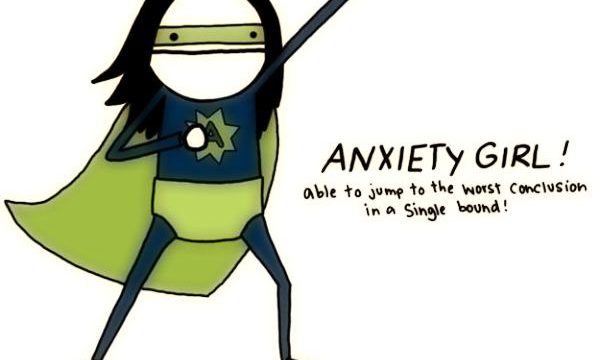Lots of people experience fear in certain situations. I think spiders are horrible. I get dizzy if I’m on a high building or bridge. I can feel uncomfortable in large crowds of people, and a little anxious if birds are flying too close to me. These feelings relate to fear or anxiety and are largely understandable.
However, fear becomes a phobia when it impacts the day to day life of an individual, is wildly out of proportion to the perceived danger, and lasts for more than six months.
The mental health charity MIND describes a phobia as a type of anxiety disorder. It is an extreme form of fear or anxiety triggered by a particular situation or object, even when there is no danger.
The intense reactions a phobia generates are debilitating. Physical symptoms include dizziness, palpitations, chest pain, sweating, changes in body temperature, shortness of breath, nausea, shaking, numbness, and tingling. Psychological symptoms include anxieties about fainting, being out of control, looking foolish, feeling detached from yourself, and thinking you are going to die.
I have experienced all of these symptoms because I have a phobia called emetophobia – an intense phobia that causes overwhelming, intense anxiety pertaining to vomiting. This phobia includes a fear of vomiting in public, a fear of seeing vomit or the action of vomiting, and a fear of being nauseated.
My phobia probably stems from experiences I had as a child. I was frequently carsick, I remember vomiting in front of everyone at school, and running out to be sick on a tree at my grandparent’s house in the countryside. My mother used to tickle my throat to enable vomiting when I felt sick, and there are other instances besides. None of these things were earth-shattering events – I don’t remember actually being afraid or anxious about these events at the time – but along the way, I somehow developed an irrational and increasingly enervating phobia about being sick.
My life gradually began to revolve around my phobia. I avoided eating certain foods, refused to drink alcohol, wouldn’t travel on a ship, turned certain TV programmes off, walked or ran out of places, refused to be with anyone who had a stomach bug, decided against pursuing a career in nursing, put off operations, and never wanted to be pregnant. I would assume someone bending down to tie their shoelaces was about to be sick. I crossed the road if someone had vomited on a pavement. I thought someone who burped was going to throw up.
The worst instances by far were when I felt nauseous or sick. The panic attacks that ensued often led me to phone the doctor, convinced I was dying. My heart pounded as all feeling left my fingers and toes, I sweated profusely, and could barely speak or stand. I wanted to cry or scream or run but I couldn’t do any of those things. It was as if I had been unplugged – all normal bodily functions out of order.
I lived like this for too long, but eventually, things started to change. I learned to breathe into paper bags – this really did work, balancing out the levels of oxygen and carbon dioxide in my body that had been altered by hyperventilating.
I also started to challenge and rationalise my thinking. I went back to university and trained to be a counsellor where discussing, learning, and reading helped me to see how much my thinking affected my phobic responses. Further training in Rational Emotive Behaviour Therapy demonstrated the extent to which my irrational thoughts and catastrophising exacerbated my phobia, and I learned many new coping strategies that have proved invaluable over the years.
More than anything, I grew older and wiser. Over the years my phobia began to fade as I realised far worse things could happen, despite the trauma I’d experienced. I still react to the same triggers, just not quite as dramatically.
Not all fears are phobias. Telling someone who has a true phobia of bees that you know how they feel because you don’t like them either can feel diminishing. Be grateful that you have never gone through what they do, and accept and respect what they tell you about their experience. It is not a competition of ‘who fears the most’ and certainly wouldn’t be one worth winning!



